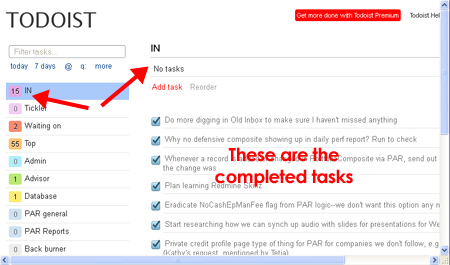This post is a continuation of a discussion of addictive behaviors that started in my previous article, “What’s the Drug in Your Life? Part I.”
Quitting addictive behaviors
Dealing with addictions often needs two things at once: a way to address the problem or problems that made running away attractive in the first place, and a change in habit to stop the addiction. In my case, I moved to a new place where I had a number of supportive friends around me. In this context, it became clear that playing computer games was stupid: it shut out my friends and created problems with them, and it wasn’t really necessary because with my friends around me, I wasn’t lonely. The fact that I didn’t see this in my life until my change in situation broke the pattern is disappointing, but I’m encouraged that I understood myself well enough, all those years ago, to take the step that put me in a situation where I could stop acting addictively.
I hadn’t realized it for years, but recent reflection made something obvious to me: the time when I stopped playing computer games was also the time when I started writing seriously again. After years of avoiding writing (following a year or two of earnest effort and no sales right after college), I was working hard once again, and I began to see signs of success early on in that process. It led directly to my being admitted to an exclusive writer’s workshop, getting an agent, selling my first book, and winning the Writers of the Future contest.
Putting ourselves in situations where we have more supportive people in our lives on a day to day basis makes a huge difference. This can be accomplished sometimes by moving, by making different lifestyle choices, by starting a new activity (check out the free site www.meetup.com for regular activities in your area), by participating in group therapy, or by re-energizing relationships with friends or family. A bonus of this approach is that increased time spent with supportive friends, family, and acquaintances cuts into addiction time, helping address the problem both directly and indirectly. Of course, it’s counter-productive to spend more time with people if they’re encouraging taking part in the addictive behavior; avoid that pitfall!
Counseling (my personal recommendation would usually be to work with an experienced cognitive therapist of some kind) can also help: when we identify what the problem or lack was that helped drive the addictive behavior in the first place and take steps to change that in our lives, the addiction loses a lot of its power.
Benefits of quitting
More benefits can come from beating an addiction than might be immediately obvious. Of course the ongoing damage the addictive behavior was doing is gone, but another major benefit is that our brains eventually return to handling dopamine in a normal way, making other activities more pleasureable. The addiction also yields time to do other things, opening up the possibility for more pleasure and improvements in our lives.
Quitting an addiction is also seen as a mark of strength and character by other people; being successful in this tends to raise our opinion of ourselves as well as other people’s opinions of us.
Finally, quitting an addiction opens up the opportunity of stepping up and facing whatever problem contributed to the addictive behavior in the first place. Is it loneliness? Fear of failure? Depression? All of these are much easier to address without an addiction in the way to complicate things.
So, while I hope your answer is “I don’t have one,” let me ask you this question: what’s the drug in your life?
Photo by absentmindedprof











